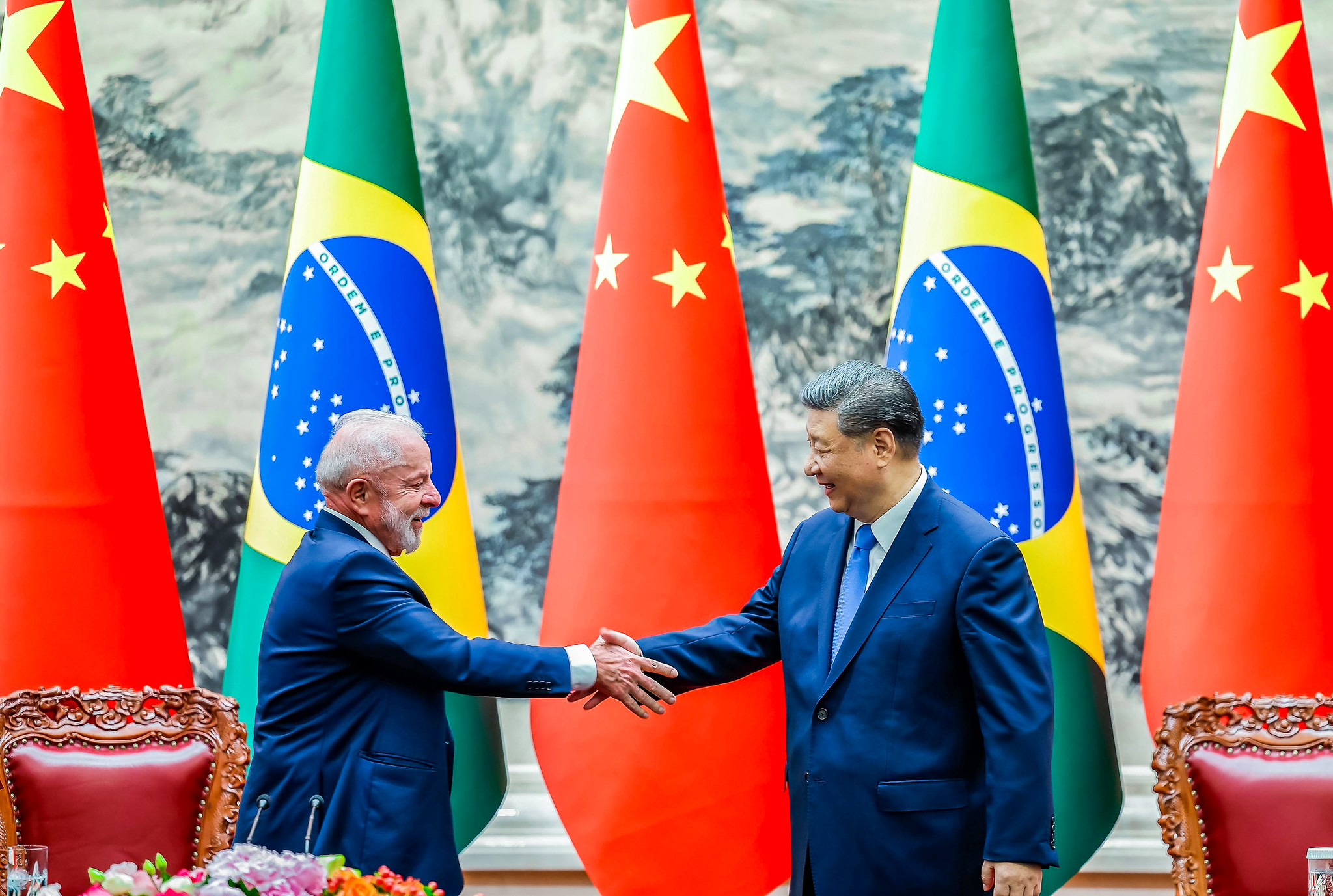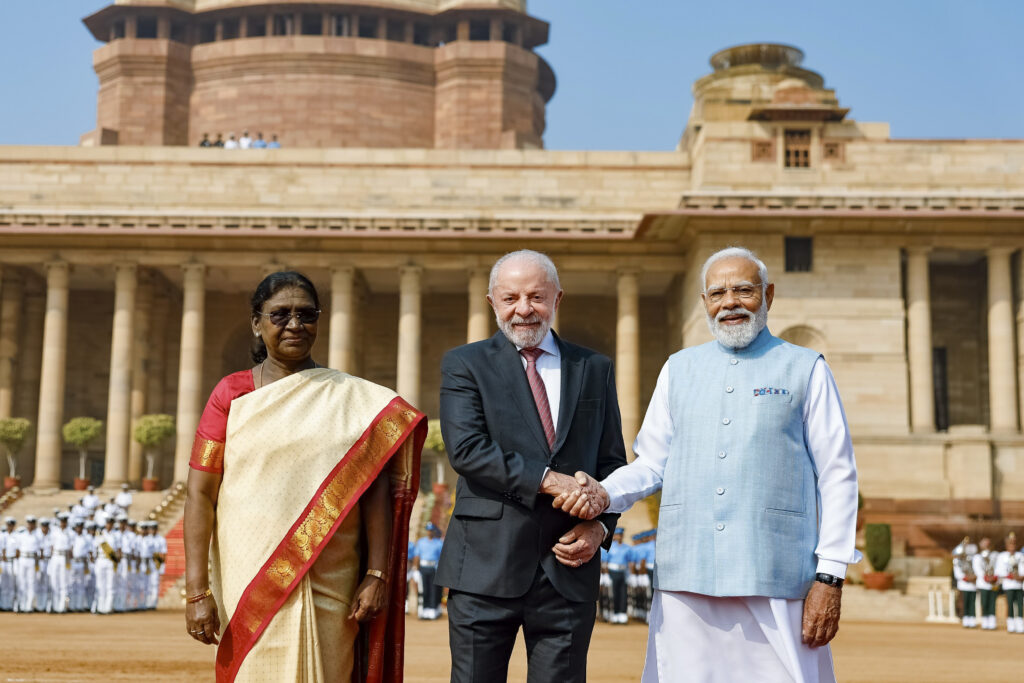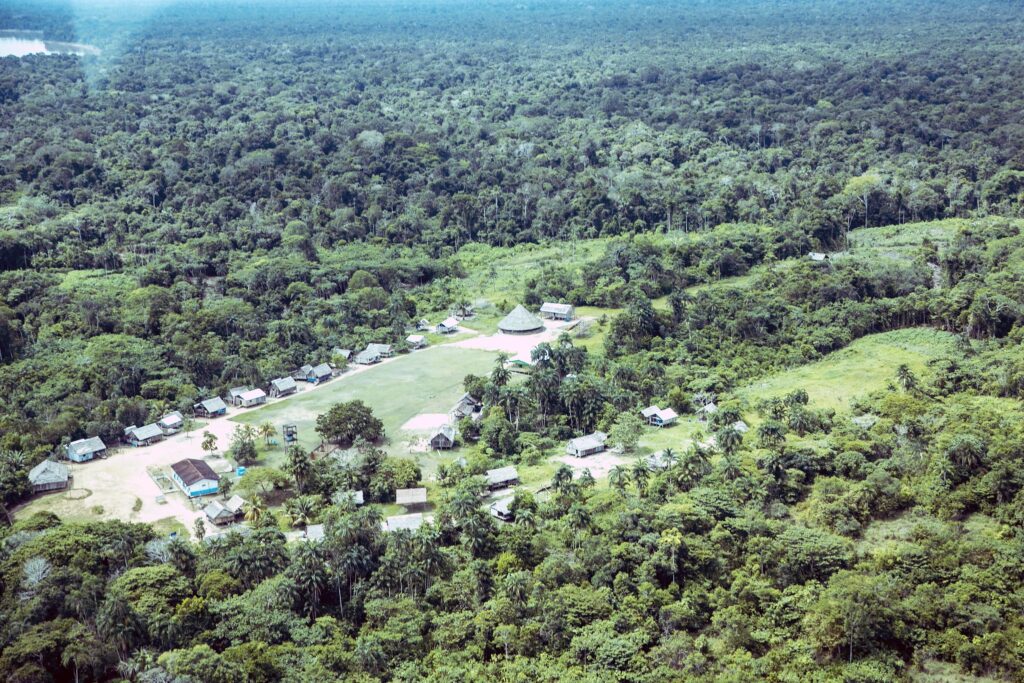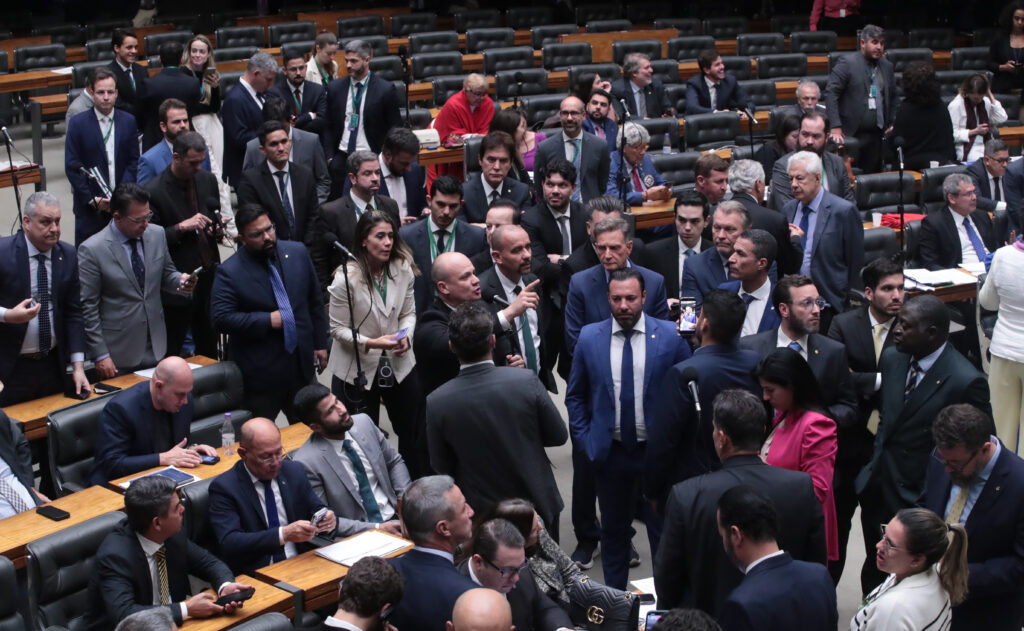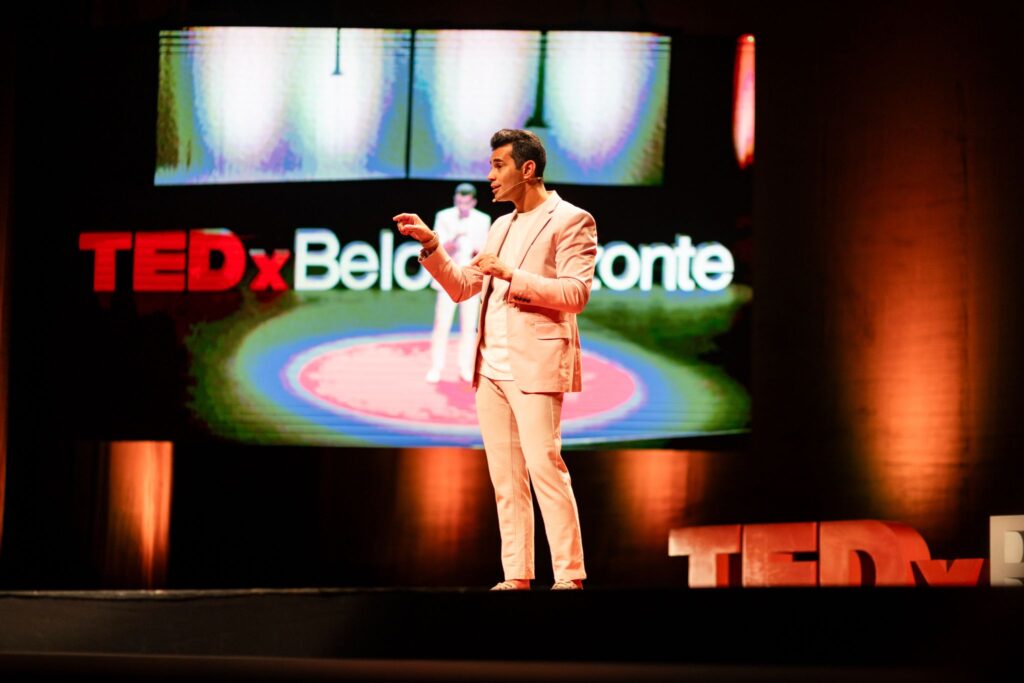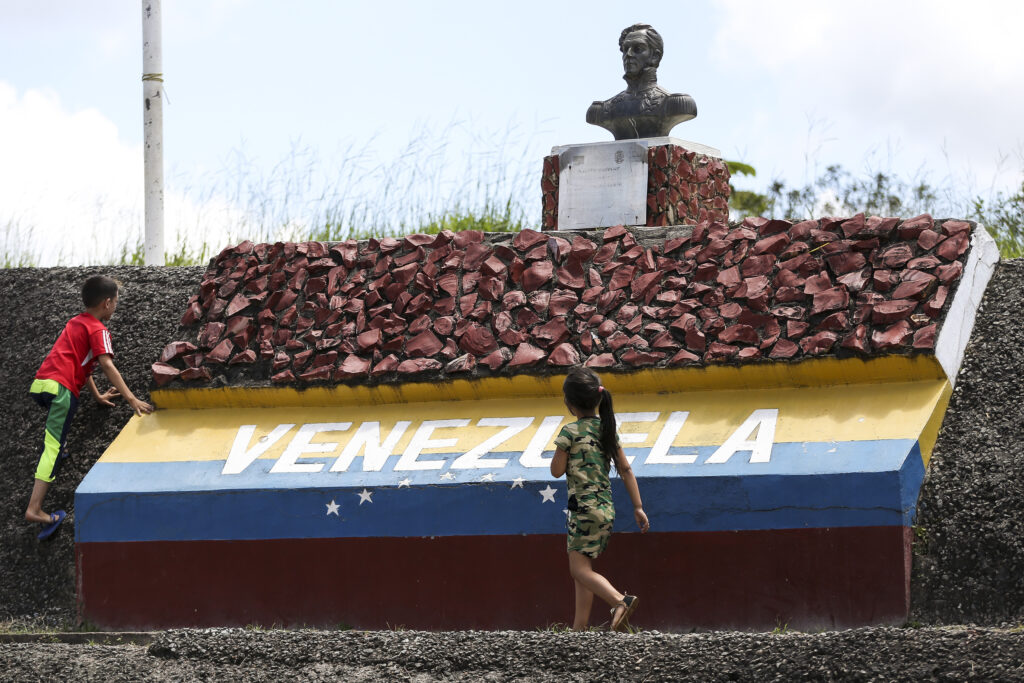São Paulo, Brazil – President Luiz Inácio Lula da Silva concluded his latest round of international diplomacy on Tuesday after a series of high-level meetings in Beijing.
His trip to China followed a visit to Russia, underscoring Brazil’s efforts to deepen ties with key global players amid an increasingly fragmented world order.
The Brazilian government announced that Lula’s visit yielded approximately R$ 27 billion (USD $4.8 billion) in planned Chinese investments into Brazil’s automotive, energy, and food sectors.
The two nations also signed 36 commercial agreements covering areas such as energy, technology, agribusiness, and finance.
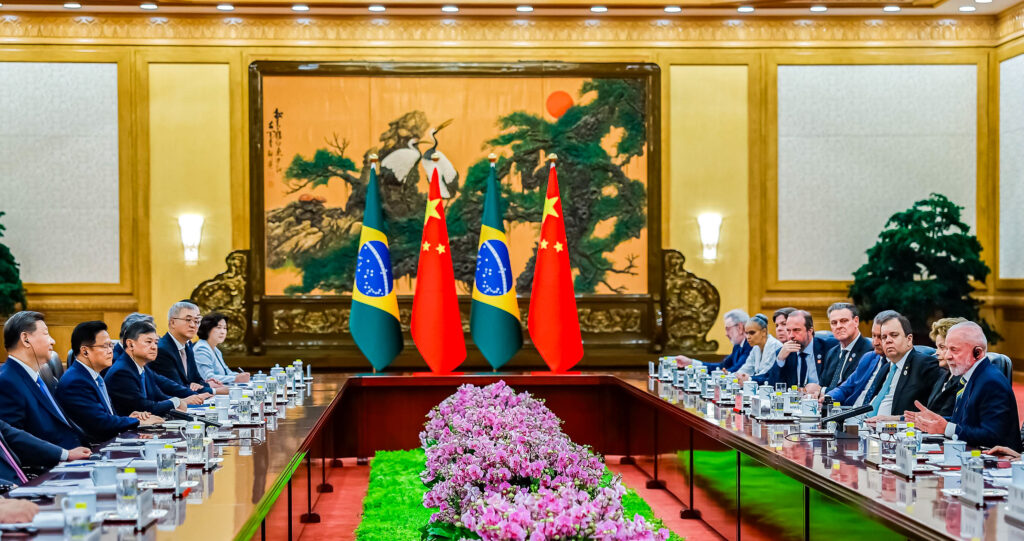
China has been Brazil’s largest trading partner for over a decade, with bilateral trade reaching USD $188 billion in 2024 – a 3.5% increase from the previous year.
Brazil exports primarily agricultural commodities to China, including soybeans, corn, beef, and coffee. In return, it imports machinery, electronics, parts, and electric vehicles from the Asian powerhouse.
In Beijing, Lula participated in the IV Forum of the Community of Latin American and Caribbean States (CELAC) and carried out a state visit at the invitation of President Xi Jinping. The two leaders met privately to discuss bilateral cooperation and geopolitical challenges.
At a press conference following their meeting, Lula emphasized the strategic importance of Brazil’s relationship with China.
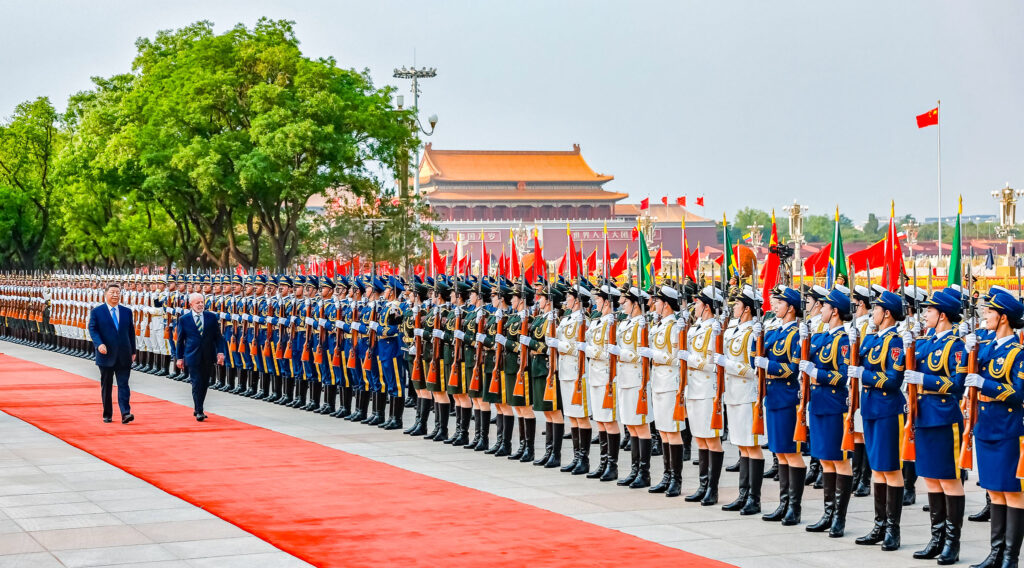
“The relationship between Brazil and China has never been more necessary,” he said. “In recent months, the world has become more unpredictable, unstable, and fragmented. China and Brazil are determined to raise their voices against unilateralism and protectionism.”
Referencing tariffs imposed by U.S. President Donald Trump on goods imported from countries around the globe, Lula reiterated his support for trade grounded in the guidelines of the World Trade Organization.
“Trade wars have no winners,” he said. “They raise prices, depress economies, and erode incomes, especially among the most vulnerable. President Xi Jinping and I both advocate for fair trade under the framework of the World Trade Organization.”
Lula also addressed global conflicts, including the war in Ukraine and the humanitarian crisis in Gaza.
“Common ground between Brazil and China offers a foundation for a comprehensive dialogue to bring peace back to Europe,” he said. Speaking on the Middle East, he added, “Humanity is diminished by the atrocities committed in Gaza. There can be no peace without a viable and independent Palestinian state living side by side with the State of Israel.”
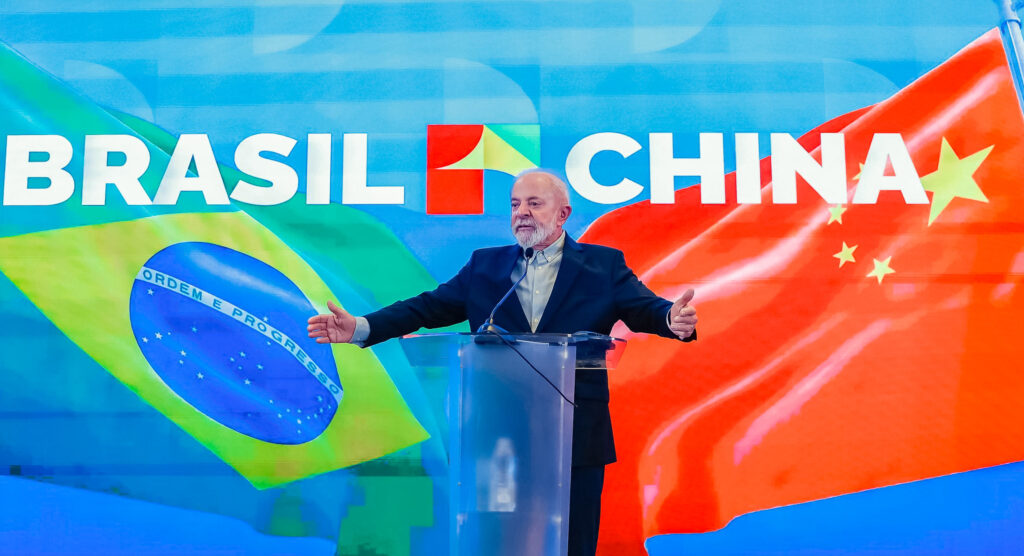
Shortly after Lula’s remarks, Ukraine’s Foreign Minister, Andrii Sybiha, took to social media to request Brazil’s assistance in urging Russian President Vladimir Putin to attend high-level negotiations in Istanbul and to press for a 30-day ceasefire.
Sybiha wrote that he spoke with his Brazilian counterpart, Mauro Vieira, and “called on Brazil to use its authoritative voice in its dialogue with Russia to make this direct highest-level meeting happen.”
Lula’s delegation to China included 11 cabinet ministers, members of Brazil’s Congress, and a business contingent of around 200 executives. This marked Lula’s second official visit to China since returning to the presidency in January 2023.
Featured image: Lula and Xi Jinping meet in Beijing (photo credit: Ricardo Stuckert / Presidency of Brazil via Flickr)


